Plant proteins have become a hot food trend around the world. A recent study at the International Food Information Council indicates that plants are the fastest-growing source of proteins for consumers in the past year. North America accounts for 38% of the $9.7 billion dollar market, growing at a rate of 7.31%, according to Mordor Intelligence. A Nielsen study reports that 52% of US consumers are eating more plant-based foods than ever before because they believe it makes them healthier. To meet this growing consumer demand, food manufacturers have been developing plant protein products with improved texture and taste – with sweetness playing a particularly important role in improving the overall flavor profile.
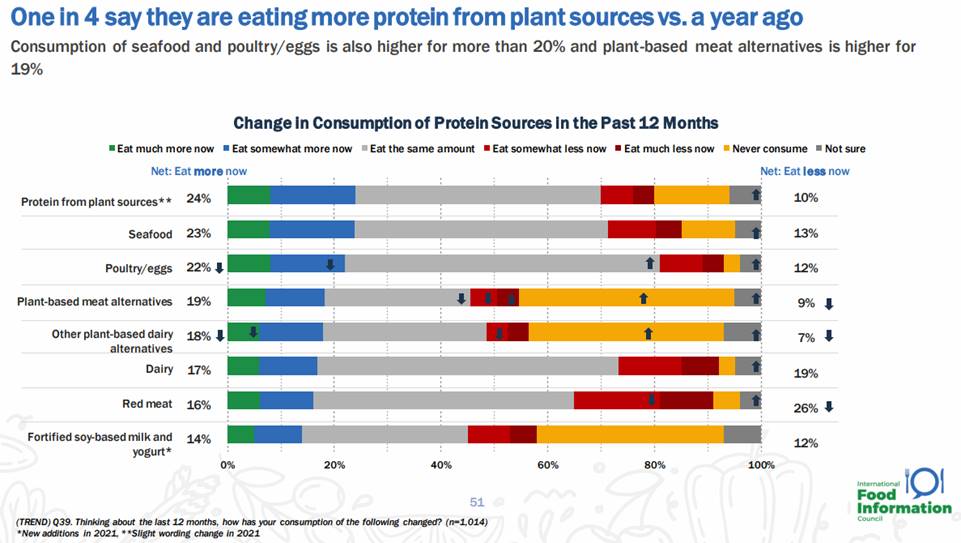
Soy, Pea, Fava, and Rice Proteins Growing in Popularity
While soy protein still holds the largest market share of plant proteins, pea and rice proteins are growing at a faster pace. Pea protein is a popular option as it provides 9 essential amino acids but comes with some earthy and other off-notes. Rice protein, also growing in popularity, doesn’t provide a full amino acid profile (it lacks lysine) but can be combined with quinoa, chia, and other proteins to compensate. Fava bean has a cleaner flavor, a full amino acid profile, and is easily digestible, but is a higher-cost product.
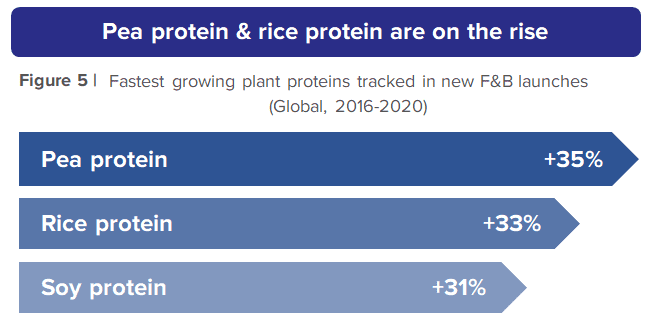
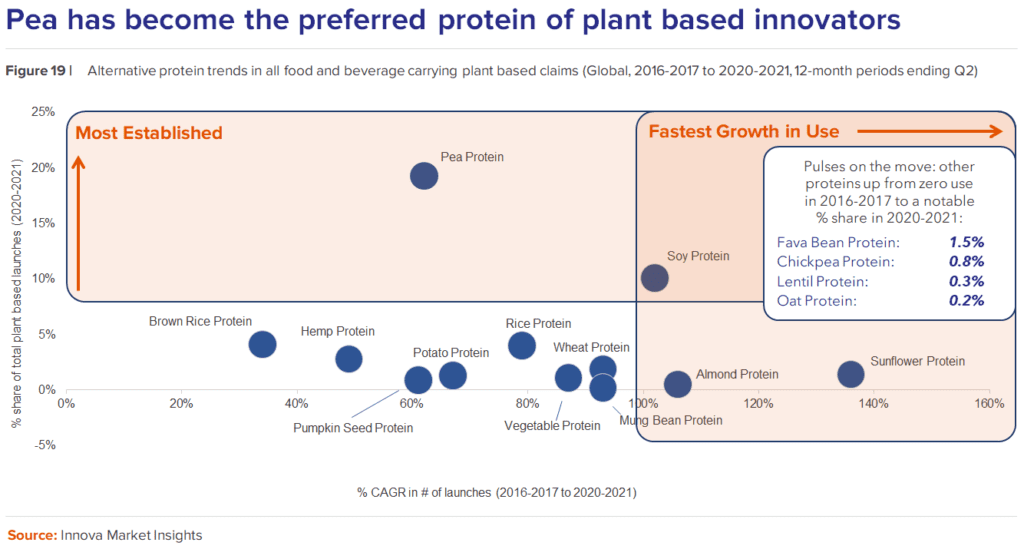
Stevia a “Natural” Sweetener Choice for Plant Protein Formulas
Plant-based sweeteners like stevia — extracted steviol glycosides from the stevia plant leaf — are a great addition to plant proteins as they help to mask off-notes or provide sweetness. They are also an excellent choice because stevia does not get treated like sugar when digested. And since it’s not metabolized like sugar, it has minimal to no effects on blood glucose, insulin levels, and blood pressure, which is an added benefit to shoppers looking to minimize sugar levels in their diet. When sweetened with stevia, plant protein products may be labeled by manufacturers with claims such as “plant-based ingredients” or “vegetarian” on the front panel. Given the increasing popularity of plant-based diets, these are among the top claims that drive consumer preference.
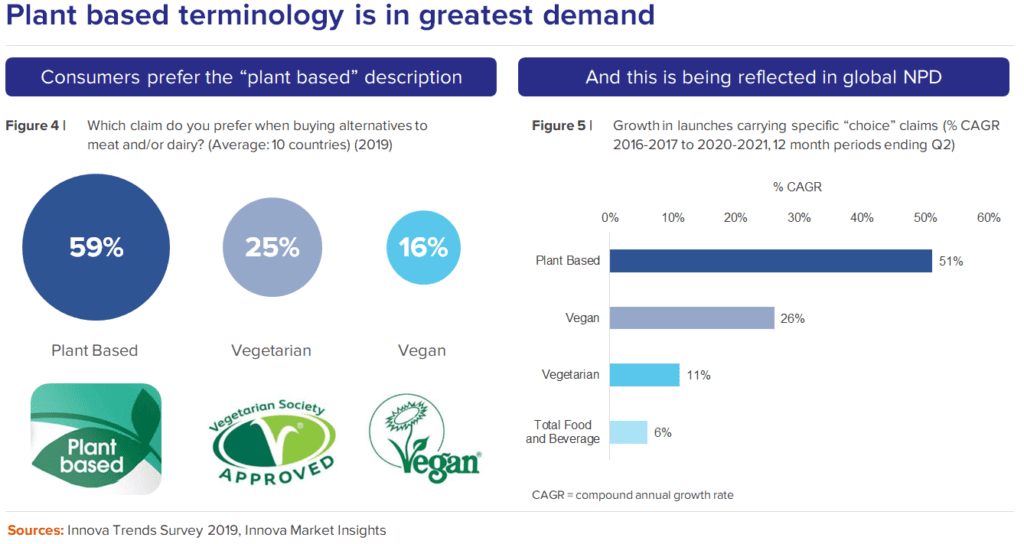
Plant Protein Product Spotlight: Nicks Karamell Swirl Vegan Frozen Dessert
Nicks Karamell Swirl Vegan Frozen Dessert is a new plant protein product made with a variety of sweeteners and bulking agents from Innova. Dairy alternative applications are likely where you will see plant protein used the most.
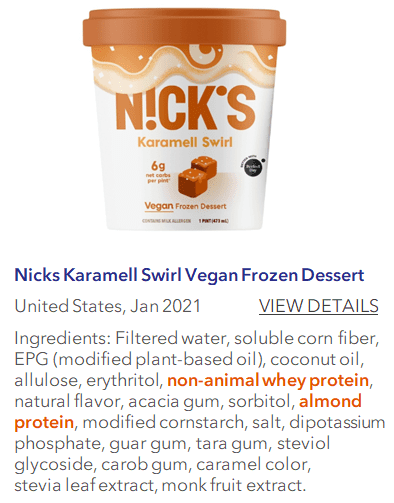
Reduced-Sugar Cheesecake Brownies with Rice Protein
At the Supply Side West 2019 trade show, we displayed a cheesecake brownie made with rice bran extract and our flavor masker DGS TN. The masker works well with a variety of plant proteins and is labeled as a natural flavor. Allulose and Reb M were used to replace the bulk and sweetness of the sugar.
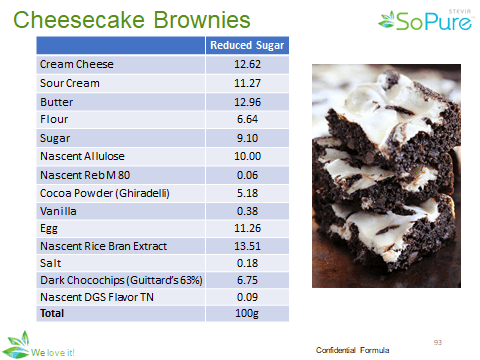
Contact Us
HOWTIAN has evaluated most major suppliers’ protein types and can provide recommendations based on flavor and price. We also have an expanded portfolio of complementary ingredients to stevia, so please contact us for samples or formulation advice!
